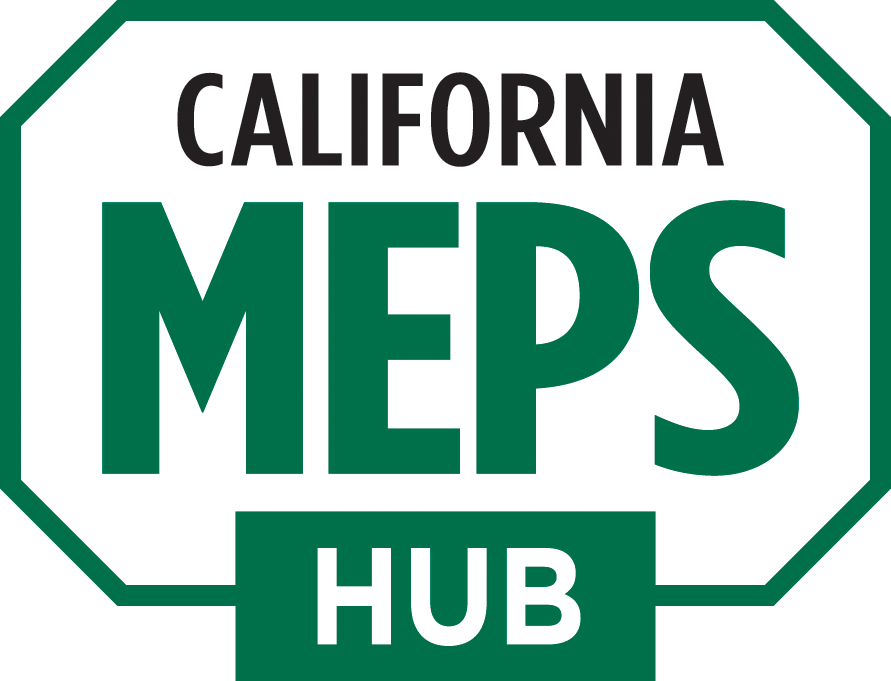
Hub Resources
Useful Links
-
Medications for Opioid Use Disorder (MOUD) - Useful Links
JCOIN Webinars
Expanding Access to Methadone Treatment for Opioid Use Disorder in Carceral Settings
Description: This webinar provided an overview of the updated final rules of 42 CFR Part 8 and how they affect methadone dispensation in carceral settings. (45 min)
Key Barriers and Facilitators for Medications to Treat Opioid Use Disorders in U.S. Jails
Description: This webinar presented findings from the national study, including the identification of 10 OUD best practices that were consistently referenced in treatment and practice guidelines recommended by a variety of federal agencies and national organizations, and were grounded in the scientific literature. (56 min)
Strategies to Reduce Recidivism and Prevent MOUD Diversion in Jails and Prisons
Description: Panelists will discuss the benefits of implementing MOUD programs in correctional facilities, including the impact MOUD has had on reducing recidivism rates. Panelists will also discuss promising practices in program design to help limit medication diversion and provide guidance for correctional professionals and lawmakers as they consider implementing MOUD treatment in jails and prisons. (52 min)
Treatment Considerations in the Age of Fentanyl
Description: Presenters discussed practical clinical practice-based guidance on treating opioid use disorder in the age of fentanyl, the use of medications for opioid use disorder (MOUD) in the treatment of individuals using fentanyl and other considerations and challenges. (83 min)
Medications for Opioid Use Disorder in Criminal Justice Settings
Description: This webinar discussed the FDA-approved medications for opioid use disorder (MOUD), how addiction is a chronic neurobehavioral disorder, that MOUD works by attenuating positive and negative reinforcement, and the effectiveness of MOUD for individuals with an opioid use disorder, and specifically for those in jails and prisons. (56 min)
PODCASTS: ACED IT podcast episodes (see: https://acedit.podbean.com/)
Medication for Substance Use Disorders in Prisons and Jails
Description: To educate correctional staff and administrators about medication for SUD/OUD in prisons, we selected three articles that highlight what these treatments are, how jails/prisons can partner with community providers to offer them, and what barriers and facilitators to MAT/MOUD implementation institutions may want to consider before adding this type of treatment to their roster of services. (14 min)
Substance Use Disorder in Prisons and Jails
Description: Although there is a lot we could talk about related to SUD in carceral settings, in this episode we will cover three key topics that came up frequently during our project interviews: fentanyl, K2, and drug testing. These three issues challenge correctional staff; their level of understanding regarding fentanyl and K2, specifically, is generally very limited. We provide today’s science on these topics and offer some advice on in-custody drug testing, too. (15 min)
Race & Medication for Opioid Use Disorder (MOUD)
Description: This episode looks at research that examines the relationship between race and the use of medication for opioid use disorder (MOUD). The researchers also look at other factors that might mediate this relationship. Findings suggest a big gap, but the researchers offer recommendations to help close this gap so everyone can access and receive MOUD equally. (11 min)
WEBSITE:Medications for Opioid Use Disorder (MOUD) Study (CDC)
WEBSITE:Linking People with Opioid Use Disorder to Medication Treatment (CDC)
DOCUMENT: How the Drug Enforcement Administration Can Improve Access to Methadone in Correctional Facilities and Save Lives (Johns Hopkins Bloomberg School of Public Health)
DOCUMENT: Providing Methadone in Jails and Prisons: An Explanation of a New Approach to Increase Access to Methadone in Carceral Settings (Johns Hopkins Bloomberg School of Public Health)
DOCUMENT: Brief FAQ on Methadone Use to Treat Opioid Use Disorder (OUD) in Carceral Settings Using the Hospital/Clinic Designation (Johns Hopkins Bloomberg School of Public Health)
FORUM: Expanding Methadone Access in Correctional Facilities (Johns Hopkins Bloomberg School of Public Health)
Description: A recording of the forum recently hosted by the Johns Hopkins Center for Mental Health and Addiction Policy and the White House Office of National Drug Control Policy covering the Substance Abuse & Mental Health Services Administration’s rules and guidance on methadone use in correctional facilities (1 hour, 7 min)
DOCUMENT: TIP 63: Medications for Opioid Use Disorder (For Healthcare and Addiction Professionals, Policymakers, Patients, and Families) (SAHMSA)
WEBSITE:Recovery is Possible: Treatment for Opioid Addiction (CDC)
WEBSITE:Treatment options - Opioid Use Disorder (CDC)
WEBSITE:Recovery is Possible: Know the Options (CDC)
DOCUMENT: What You Need to Know About Treatment and Recovery (CDC)
DOCUMENT: Cultivating Law and Medicine Partnerships to Support Justice-Involved Individuals with Substance Use Disorders (AAAP)
DOCUMENT: Medications for Opioid Use Disorder Save Lives (National Academies Press)
DOCUMENT:Overdose Prevention and Response Toolkit (SAHMSA)
WEBSITE: Preventing Opioid Use Disorder (CDC) (CDC
WEBSITE: Buprenorphine (SAHMSA)
DOCUMENT: The Facts About Buprenorphine (SAHMSA)
WEBSITE:Methadone (SAHMSA)
TRAINING: SFDPH Overdose Prevention Training Series (San Francisco DPH)
WEBSITE: Medications to Treat Opioid Use Disorder Research Report (NIDA)
VIDEO: Medications for Opioid Use Disorder (3 min, 42 sec) (NIDA)
-
Opioid Reversal - Useful Links
WEBSITE: Overdose Reversal Medications (NIH)
WEBSITE: What is naloxone? (NIH)
WEBSITE: Naloxone (California Department of Public Health)
WEBSITE: Over the Counter Naloxone (California Department of Public Health)
WEBSITE: Overdose Prevention (San Francisco AIDS Foundation)
WEBSITE: Reverse Opioid Overdose to Prevent Death (Centers for Disease Control)
WEBSITE: 5 Things to Know About Naloxone (Centers for Disease Control)
WEBSITE: Lifesaving Naloxone (Centers for Disease Control)
COMMENTARY: Time for Honest Discussions About Naloxone (Medscape and the Centers for Disease Control)
Description: This video is from 2019. Jerome M. Adams and Debra Houry discuss naloxone. (8 min, 25 sec)
DOCUMENT: What You Need to Know About Naloxone (Centers for Disease Control)
DOCUMENT: How and When to Use Naloxone for an Opioid Overdose (Centers for Disease Control)
TRAINING: Talking About Naloxone (Centers for Disease Control)
Description: This training focuses on how to talk with patients and their families, friends, and caregivers about naloxone.
Mini-Modules
Assessing Risk Factors for Opioid Overdose
Engaging Patients in a Conversation about Naloxone
Reducing Stigma Surrounding Naloxone
PODCAST: Lifesaving Naloxone
(7 min, 15 secs)
WEBSITE: SFDPH: About Naloxone
WEBSITE: https://www.fda.gov/consumers/consumer-updates/access-naloxone-can-save-life-during-opioid-overdose
VIDEO: How Naloxone Saves Lives in Opioid Overdose (5 min, 39 sec)
-
CalAIM (California Advancing and Innovating Medi-Cal) - Useful Links
WEBSITE:What is CalAIM? (California Department of Health Care Services)
VIDEO: CalAIM | Our Journey to a Healthier California for All (1 min, 50 sec) (CalAIM)
VIDEO: California Advancing and Innovating Medi-Cal (CalAIM) (18 min, 15 sec) (CalAIM)
Publications and Reports
Scientific Publications: Click here for links to scientific articles on MEPS and on Passport to Wellness (the intervention from which MEPS was developed)
Comparing PrEP use among different MEPS participants (AIDS Care, 2025)
Reviewing long-acting injectables for HIV with lessons from addiction medicine and psychiatry (AIDS and Behavior, 2023)
Passport to Wellness outcomes paper (AIDS Education Prevention, 2020)
Original MEPS study protocol (JMIR Research Protocols, 2020)
Outcomes from a peer navigation intervention for people living with HIV released from jail (JAMA Internal Medicine, 2018)
Educational Videos
Watch informative videos about HIV prevention, substance use, and related topics.
Contact Us
For more information or resources, please contact us:
Email: camepshub@mednet.ucla.edu
Phone: (424) 501-4829
